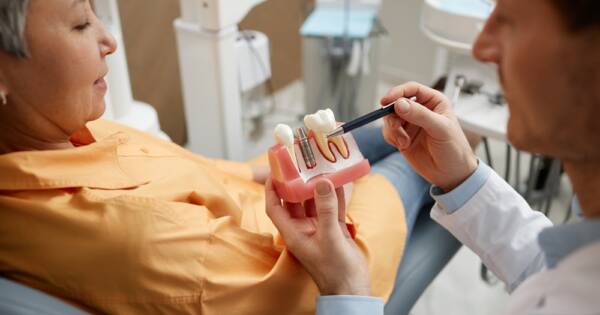Plaque psoriasis is a chronic skin condition that causes red, scaly patches to form on the skin. These patches, called plaques, often appear on the elbows, knees, scalp, and lower back. The condition is the most common form of psoriasis and can cause discomfort and emotional distress. Understanding the symptoms, causes, and available treatments is crucial for managing plaque psoriasis effectively.
Symptoms of Plaque Psoriasis
Plaque psoriasis is characterized by raised, red patches of skin covered with silvery-white scales. These plaques are typically itchy and can crack or bleed, especially in severe cases. The affected areas may also feel warm to the touch and can be painful when scratched or irritated. The plaques tend to appear on areas of the body such as the elbows, knees, scalp, and lower back, but they can develop anywhere on the body.
In addition to the visible patches, individuals with plaque psoriasis may experience discomfort or a burning sensation in the affected areas. In some cases, the condition can also lead to psoriatic arthritis, a type of joint inflammation that causes pain and stiffness in the joints. This condition can further limit mobility and quality of life for some people.
Causes of Plaque Psoriasis
Plaque psoriasis is an autoimmune disorder in which the body’s immune system mistakenly attacks healthy skin cells. This immune response leads to the rapid production of skin cells, which pile up on the surface, forming the thick plaques characteristic of the condition. Normally, skin cells take about a month to mature and shed. In people with psoriasis, this cycle can take only a few days, resulting in the buildup of dead skin cells.
Genetics play a major role in the development of plaque psoriasis. People with a family history of psoriasis are at a higher risk of developing the condition. However, environmental factors, such as infections, skin injuries, and stress, can also trigger or worsen flare-ups. Dietary factors may also influence the severity of plaque psoriasis. Some people find that certain foods, such as alcohol, red meat, and dairy, can trigger flare-ups. Eating a balanced, anti-inflammatory diet may help manage the condition for some individuals.
Treatment Options for Plaque Psoriasis
There are various treatments available for managing plaque psoriasis, ranging from topical creams to systemic therapies. The right treatment depends on the severity of the condition and how well the individual responds to different therapies.
Topical Treatments
The first line of treatment for mild to moderate plaque psoriasis is usually topical medications. Corticosteroid creams and ointments are the most commonly used treatments to reduce inflammation and relieve itching.
Other topical treatments include vitamin D analogs, coal tar, and topical retinoids. These products can help control symptoms and prevent flare-ups when applied regularly to the affected areas.
Phototherapy
For moderate to severe cases of plaque psoriasis, phototherapy, or light therapy, can be an effective treatment. This involves exposing the skin to ultraviolet (UV) light under the supervision of a healthcare professional.
Phototherapy can help slow down the production of skin cells and reduce the thickness of plaques. Multiple sessions may be required for the best results.
Systemic Treatments
If topical treatments and phototherapy do not provide sufficient relief, systemic treatments may be necessary. These treatments work throughout the body and are typically used for moderate to severe cases of psoriasis.
Systemic medications include biologics, such as the ones provided by Skyrizi, which target specific immune system cells to reduce inflammation. Other systemic treatments include oral medications like methotrexate, cyclosporine, and acitretin.
Lifestyle Changes
Managing plaque psoriasis also involves making lifestyle adjustments. Reducing stress and avoiding known triggers, such as smoking and excessive alcohol consumption, can help minimize flare-ups.
Maintaining a healthy weight and moisturizing the skin regularly can also prevent dryness and cracking, which can worsen the symptoms of psoriasis. Additionally, wearing loose-fitting clothing and avoiding skin injuries can help reduce irritation to affected areas.
Living With Plaque Psoriasis
Living with plaque psoriasis can be challenging, especially when flare-ups impact a person’s daily life. The visible nature of the condition can cause emotional distress, as many individuals feel self-conscious about their appearance. It is important for those with psoriasis to seek support from healthcare providers, family, and friends. Joining a support group can also be helpful for those looking to share experiences and coping strategies.
For individuals with moderate to severe psoriasis, working with a dermatologist is key to finding the right treatment. Regular check-ups ensure that the treatment plan is effective and allows for adjustments if necessary. Additionally, staying informed about the latest treatment options can help individuals with psoriasis make educated decisions about managing their condition.
Learn More Today
Plaque psoriasis is a chronic but manageable condition. With the right treatment and lifestyle changes, people with psoriasis can reduce flare-ups and improve their quality of life. If you suspect you may have plaque psoriasis, consider consulting with a dermatologist for personalized advice and treatment options. The earlier the condition is diagnosed, the easier it is to manage effectively.





